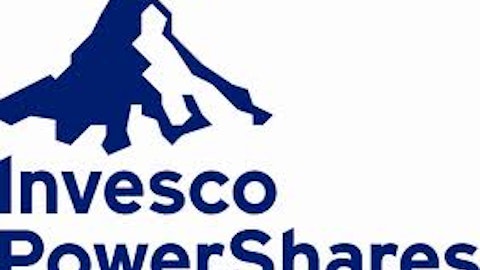Numerous research papers have provided evidence that corporate insiders’ purchases deliver superior returns over a long-term investment spectrum. After the enacment of the Sarbones-Oxley Act more than ten years ago, corporate insiders are required to report changes in ownership to the U.S. Securities and Exchange Commission within two business days, which enables non-insiders to imitate their trades in a timely manner and generate superior returns along with them. While insider buying bears more relevant information than insider selling, which seems to be quite logical given that insiders may sell stock for a wide array of reasons unrelated to their companies’ prospects. Even so, this type of activity should not be overlooked by any means. Instead, insider selling activity should be more closely examined so as to diminish the likelihood of false interpretations. It is true that insider sales may fail to provide accurate signals to predict future stock price depreciation, but correct interpretations of these trades may save an average investor hundreds or thousands dollars. With this in mind, let’s now take a thorough look at the insider selling activity registered by three U.S-listed companies and attempt to find out the reasoning behind their insiders’ moves.

RioPatuca/Shutterstock.com
Prior to discussing the insider trading activity, let’s make you familiar with what Insider Monkey does besides providing high-quality articles. We track hedge funds and prominent investors because our research has shown that historically their stock picks delivered superior risk-adjusted returns. This is especially true in the small-cap space. The 50 most popular large-cap stocks among hedge funds had a monthly alpha of about six basis points per month between 1999 and 2012; however the 15 most popular small-cap stocks delivered a monthly alpha of 80 basis points during the same period. This means investors would have generated ten percentage points of alpha per year simply by imitating hedge funds’ top 15 small-cap ideas. We have been tracking the performance of these stocks since the end of August 2012 in real time and these stocks have beaten the market by 53 percentage points (102% return vs. S&P 500’s 48.7% gain) over the last three-plus years (see more details here).
Getting back to the insider trading activity, Align Technology Inc. (NASDAQ:ALGN) is one of the companies that registered heavy insider selling this week. Chief Financial Officer David L. White sold 8,426 shares on Tuesday at a weighted average sale price of $66.85 and offered 3,000 shares as a bona-fide gift on Wednesday. Following these transactions, the CFO currently holds an ownership stake of 5,636 shares. Jennifer M. Erfurth, Vice President of Global Human Resources at Align Technology, unloaded 6,198 shares on Wednesday at a weighted average price of $66.04, leaving her with just 686 shares. It appears that these insiders are playing the buy-low, sell-high game, as the stock is up by more than 17% year-to-date, thanks to its stronger-than-expected third-quarter earnings report. The leader in modern clear aligner orthodontics reported earnings per share of $0.34 on revenue of $207.64 million, compared to EPS of $0.47 on revenue of $189.88 million posted a year ago. James Crichton’s Hitchwood Capital Management acquired a 1.2 million-share stake in Align Technology Inc. (NASDAQ:ALGN) during the second quarter, making it one of the largest shareholders of the company within our database.
Follow Align Technology Inc (NASDAQ:ALGN)
Follow Align Technology Inc (NASDAQ:ALGN)
Receive real-time insider trading and news alerts
On the next page of the article, we disclose the insider selling activity that has occurred at Syntel Inc. (NASDAQ:SYNT) and Knoll Inc. (NYSE:KNL).




